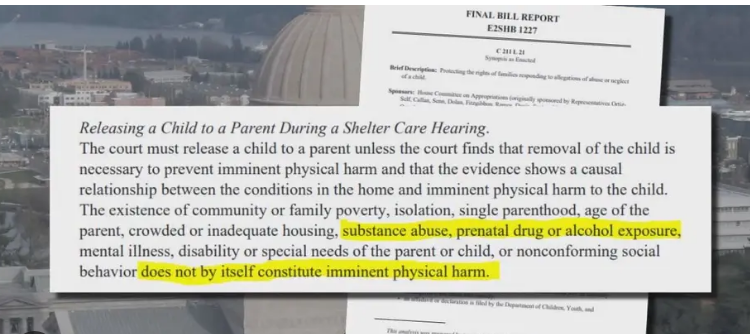The recent death of an infant in Port Townsend, Washington, has ignited a contentious debate between the Jefferson County Prosecutor and the sponsor of a new state law, House Bill 1227. The heart of the dispute lies in the law’s impact on child protective services and their ability to intervene in cases involving drug use. The tragic case of Jordan Sorensen, a 37-year-old accused of kidnapping and disposing of his own baby’s body, has brought this issue to the forefront, with the infant having been left in Sorensen’s custody despite his known drug use and extensive criminal record.
Law’s Intent vs. Tragic Outcome
James Kennedy, the Jefferson County prosecuting attorney, has pointed to HB 1227 as a critical factor in the child protective services’ decision to leave the weeks-old baby in the care of Sorensen. According to Kennedy, the law stipulates that “imminent danger” must be proven to remove a child from a home, and that drug use alone does not constitute enough risk. This interpretation of the law has sparked concerns about its implications for the safety of children in environments with substance abuse.

However, Rep. Lillian Ortiz-Self, the sponsor of HB 1227, strongly disagrees with this interpretation. In her view, the law was designed to address the injustices associated with separating families due to poverty, not to prevent the removal of children from homes where drug use poses a significant risk to their well-being. Ortiz-Self emphasizes that the law did not alter existing protocols regarding addiction issues and that the mere use of substances has not been deemed sufficient cause for child removal for many decades.
A Misunderstanding or a Flaw in Legislation?
The debate raises critical questions about the balance between protecting children and preserving family integrity, especially in cases where substance abuse is involved. While Ortiz-Self defends the law’s intentions and its continuity with previous legislation regarding substance use, Kennedy’s concerns highlight a perceived gap between the law’s objectives and its real-world applications. This gap, as demonstrated by the tragic outcome in Port Townsend, suggests a need for clarity and possibly revisions to ensure child protective services have the necessary authority to act in the best interests of children at risk.
Read More:
- Defending Science and Reputation: Michael Mann’s Defamation Trial Against Bloggers
- U.S. launches new strikes against Iran-backed militia
The tragic death of the Port Townsend infant serves as a poignant reminder of the complexities surrounding child welfare legislation and the paramount importance of safeguarding vulnerable children from harm. As the community mourns the loss of a young life, the debate surrounding HB 1227 underscores the ongoing challenges faced by lawmakers, law enforcement, and child protective services in navigating the delicate balance between protecting children and respecting family rights. The case may prompt a reevaluation of the law and its implications for child welfare, potentially leading to amendments that strengthen the ability of protective services to intervene in high-risk situations without unduly disrupting family units.

